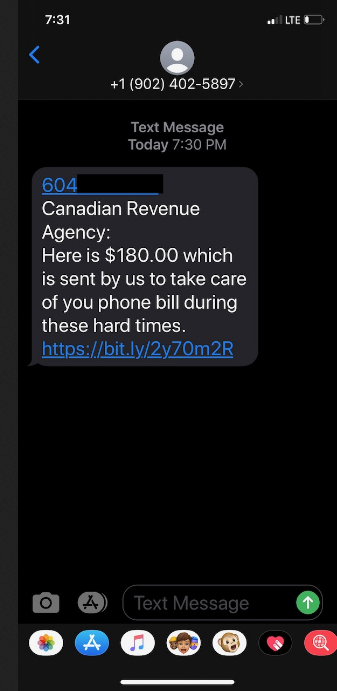North Vancouver RCMP Sgt. Peter DeVries was at home when he got a recent text message: the government was sending him money to help with his phone bill “during these hard times”, and all he needed to do to claim the cash was click the link.
If that sounds familiar, it’s not surprising.
DeVries said there are a number of new scams that have sprung up in the wake of COVID-19, from con artists purporting to be government agencies offering help.
And just as nobody’s immune from the novel coronavirus, nobody’s immune from being targeted by virus scammers either.
“I’m on my time off and I’m getting these text messages the same as you are when you are doing laundry or mowing the lawn,” he said in recent video post.
“These are people who are trying to take advantage of us during the COVID-19 pandemic.”
In DeVries’ case, a text message from the “Canadian Revenue Agency” offered $180 to “take care of you phone bills during these hard times.”
The Canadian Anti-Fraud Centre is seeing an uptick in fake emails, texts and social media posts that try to trick victims into believing the government is sending them COVID-19 relief money, said Devries.
The message prompts the recipient to click a link to claim their payment, and then tricks them into sharing personal information, which is then used to create fake identities and commit additional crimes in the person’s name.

In many cases, scammers will impersonate agencies of authority like the Canada Revenue Agency (which does not contact people via text.)
Scammers will often use spoofing to make it seem like the email is coming from a legitimate sender. But a closer look at the full email will often reveal the sender’s true identity.
DeVries said the first rule of thumb when receiving scam texts and emails: don’t click the link.
Anyone who has fallen prey to scammers can report it to local police.



